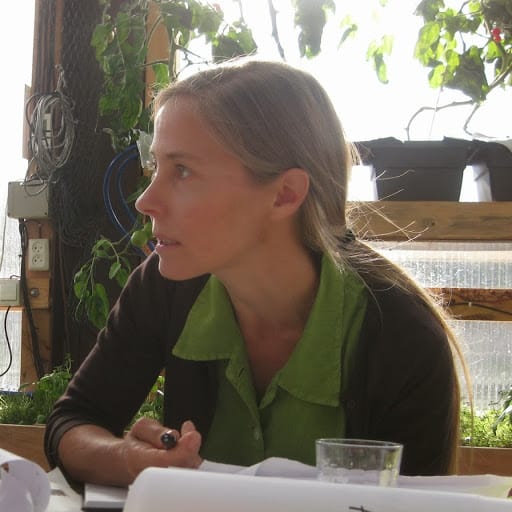Since 1992, the EASA has published its own collection, initially with Routledge and now with BerghahnBooks. Among its most popular titles are ‘Audit Cultures’ edited by Marilyn Strathern (2000), ‘Policy Worlds’ edited by Cris Shore, Susan Wright and Davide Però (2011), as well as ‘Nature and Society’ by Philippe Descola and Gísli Pálsson (1996).
In Autumn 2013 the book series appointed a new editor Eeva Berglund. As a part of our #PublicationJihad Allegra sat down with her for a chat on the past, present and future of publishing within anthropology and beyond. Simultaneously this opens our collaboration with the EASA around the Bi-Annual meeting organised in the summer 2014 in Tallinn.
 Allegra: Hi Eeva – it’s nice to ‘bump into’ you again (Allegra moderator MHT and Eeva worked together on the editorial team of Suomen Antropologi: Journal of the Finnish Anthropological Society some time back). What persuaded you to take up this post as the EASA book series editor and what kind of expectations do you have for it?
Allegra: Hi Eeva – it’s nice to ‘bump into’ you again (Allegra moderator MHT and Eeva worked together on the editorial team of Suomen Antropologi: Journal of the Finnish Anthropological Society some time back). What persuaded you to take up this post as the EASA book series editor and what kind of expectations do you have for it?
Eeva Berglund: I have been on the edges of academia for some years now. I became a docent (or adjunct professor to anyone outside Finland!) of environmental policy and urban studies at the University of Helsinki in 2011, but then I realized I missed anthropology in particular. The suggestion that I apply for this job arrived at an opportune moment, in the middle of a very stimulating workshop at the Helsinki Collegium for Advanced Studies last May, “Toward a Comparative Study of the Good”. The anthropological dimensions of the workshop, convened by Joel Robbins, just impressed me with their combination of imagination and scholarship.
A: What do you see as ‘being in the air’ within anthropological scholarship thematically – what should we expect in the next few years? By which books or authors have you recently been particularly inspired?
EB: Rather than predict, I’d prefer to think about past trajectories of how much things have changed. For instance, my own PhD dissertation on environmental activism in a German town, submitted back in 1994, was viewed by some influential scholars as not really belonging to anthropology, maybe sociology or some new-fangled social study of science-thing. Today, interdisciplinary conversations between anthropologists and other scholars, notably in science and technology studies but elsewhere as well, have flourished fantastically. Perhaps even more significantly, sophisticated studies of economic relations are blooming. I’d be astonished if this work didn’t expand within the discipline.
Of particular texts, I’d say that in anthropology I’m inspired by research that approaches questions around ontology ethnographically, linking them to the pains and pleasures of life as it’s really lived. One example is Marisol de la Cadena’s 2010 essay, ‘Indigenous Cosmopolitics in the Andes: Conceptual Reflections Beyond “Politics”’, in Cultural Anthropology. It’s great anthropology and the kind of exercise that the world, I think, desperately needs.
A: Currently there is a LOT of talk about the crisis of scholarship, audit cultures, universities being under ‘attack’ from all sides. What kind of positive messages do you have for us all in these difficult times? How could scholars in general and anthropologists in particular find possibilities to carry out their core business, that is, research?
EB: It’s not easy to be so positive about this. My own experience is that the problems are not confined to academia. Like everyone else, academics need to defend the good parts of their heritage much more confidently. Before commercial imperatives were prioritised, for instance, many universities in the UK (the country I know best), operated extremely well as publicly funded institutions. Trying to turn them into pretend-businesses is based more on ideology than on solid argument.
To anthropologists specifically, I’d say look to the discipline’s own analyses.
I think anthropological work on what passes for economic reality does actually provide a variety of pretty potent tools with which to argue against the neoliberalisation of everything everywhere.
A: We in Allegra are of course an online experiment, dedicated (among other things) to finding ways to make our statement to contemporary flows and aesthetics of societal discussions. What is your take on the social media; do you find enthusiasm in such online experiments & what kind of expectations would you suggest that we set for ourselves?
EB: Actually I’m quite comfortable with social media and EASA certainly is. Its Facebook pages, Twitter feed and webinars are attracting growing numbers of participants. Also, I look forward to the availability of individual chapters from edited volumes becoming available electronically. True, I do dislike the attention deficit that social media can induce. There is, however, no reason for online communications to be any less careful – slow if you like – than conventional media.
Having said that, in my own everyday life, the printed book and the local bookshop really are quite hard to beat.
Warm thanks for your time, and with warm congratulations again for your new position. Allegra looks forward to much more exciting collaboration!



